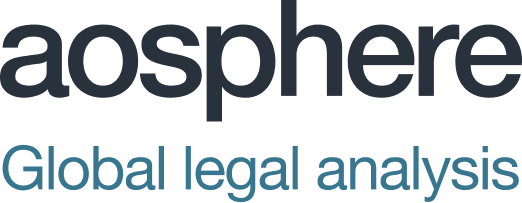The number of ELTIFs being launched in Europe continues to increase, with many of them providing access to private markets for a broader range of investors through an evergreen solution. In this article we look at some of the key points to consider when looking to market and distribute ELTIFs on a cross-border basis across the EU, whether to professional investors only or also to retail investors. While there is a marketing passport which facilitates these activities, it is necessary to check the national position with regard to scope of permitted reverse enquiries, pre-marketing (especially pre-marketing of ELTIFs to retail investors) and any jurisdiction-specific documentation requirements.
1. What is an ELTIF?
An ELTIF is a European Long-Term Investment Fund, a specific type of alternative investment fund that allows investors, both professional and retail, to invest in companies and projects that require long term capital. It benefits from an EU marketing passport, allowing distribution across all member states without needing separate national approvals. A notification is required to utilise the passport and where used in respect of retail investors, certain additional requirements apply.
Not as many ELTIFs were launched as had been expected when the regime was launched in 2015. Following a review, a regulation amending the ELTIF Original Regulation came into force on 9 April 2023 and entered into application on 10 January 2024 (ELTIF 2.0). The aim of ELTIF 2.0 was to increase the attractiveness of ELTIFs and to make it easier for retail investors to invest in them. Diversification rules and the minimum investment threshold were relaxed under ELTIF 2.0, with open-ended ELTIFs now explicitly allowed.
The ELTIF structure can be used to provide private investors with exposure to infrastructure, private equity, private credit and real estate assets which are traditionally hard to access while ensuring a certain level of liquidity. Since ELTIF 2.0 came into force we have noted an increased interest in firms looking to structure such evergreen funds for global wealth businesses. ESMA maintains a register of all the ELTIFs that have been authorised and from this we note that most of the authorisations have been in Luxembourg, France, Ireland and Italy.
Note that ELTIF 2.0 is not yet in force in Iceland, Liechtenstein and Norway. For these EEA jurisdictions, EU financial services legislation such as ELTIF 2.0 must first be specifically adopted into the EEA Agreement before it is then implemented and comes into force in the respective jurisdiction.
2. What are the key requirements to qualify as an ELTIF?
In order to qualify as an ELTIF, the fund must comply with rules concerning eligible assets. At least 55% must be invested in prescribed types of assets. Under ELTIF 2.0 the range of eligible assets has been widened to include: (i) more assets that constitute “real assets” (including immovable property), (ii) fund of funds, (iii) certain investments in securitisations, green bonds and FinTechs, and (iv) assets located in certain jurisdictions outside the EU).
Managers of ELTIFs are able to choose whether they market only to professional investors or also to retail investors. The borrowing limits differ depending on what investor type they are offered to and ELTIFs offered to retail investors must comply with certain additional diversification and acquisition limits.
3. How has marketing & distribution of ELTIFs been eased under ELTIF 2.0?
To help managers access retail investors more easily, ELTIF 2.0 changed the following
- the minimum investment threshold limit was removed; and
- suitability tests are now aligned with MiFID II.
There is also no longer a requirement to have local facilities by means of a local presence in the Member State where the ELTIF is marketed to retail investors. However, at aosphere, we have still been asking local counsel to confirm if there are any jurisdiction-specific requirements that may apply with regards to whether some facilities may nevertheless need to be provided and/or whether there is any requirement for a local agent/distributor.
4. What considerations need to be taken when marketing to Retail Investors?
Please note that in addition to the documentation and information required to be provided pursuant to the marketing passport notification procedures of the AIFMD, the AIFM of the ELTIF should provide the competent authority in its home member state with the prospectus of the ELTIF (the content of which must contain information to be disclosed by collective investment undertakings of the closed-end type in accordance with PR3 and Article 23 of the ELTIF Regulation).
In addition, if the ELTIF is to be offered to retail investors, there are additional documentation requirements.
The types of additional documentation requirements include:
- Provision of a PRIIPs KID
- Confirmation in prospectus and marketing documentation that ELTIF is intended for retail investors
- Access to paper copies of annual report and prospectus
- Specific annual report requirements for retail investors
- A statement of suitability should be provided
- Cooling-off period, appropriate procedures for investor complaints and equal treatment of retail investors
At aosphere, our materials provide further detail on the above requirements as well as certain other requirements that must also be considered.
5. Which areas are still uncertain or differ across Member States?
Although ELTIF 2.0 is a European regulation, having direct effect across all EU Member States, we have collated feedback from our local counsel on jurisdiction-specific information on the marketing passport notification process and requirements, reverse enquiry, pre-marketing and disclaimers.
There are still some areas of uncertainty/differentiation, in particular:
- Is it possible to pre-market an ELTIF to retail investors? Although pre-marketing to professional investors is permitted under AIFMD prior to the marketing passport notification, in certain countries it is not possible to pre-market an ELTIF to retail investors, for example, in Germany, Italy, Luxembourg & Spain. The position in France and Sweden is still uncertain.
- Has the marketing passport been extended to non-professional investors? In some countries the AIFMD marketing passport is available to a wider category of investors than professional investors, for example, “semi-professional investors” in Germany and Denmark. However, under ELTIF legislation such investors must be treated as retail investors. This means that when marketing to such investor types, the additional documentation requirements for retail investors mentioned above need to be met.
- How does the Prospectus Regulation apply to ELTIFs? Some countries require an ELTIF to specifically have its prospectus approved pursuant to PR3 if it is closed-ended, its interests qualify as transferable securities and no exemption applies, even though the ELTIF content requirements for the prospectus include the information to be disclosed pursuant to PR3.
- Can you respond to a reverse enquiry in relation to an ELTIF? Whether passive marketing/selling of an ELTIF by a firm in response to a reverse enquiry is possible varies across the EU. The ELTIF legislation does not specifically cover this and therefore the requirements applicable to the entity responding to the reverse enquiry and the ELTIF must be considered on a jurisdiction-by-jurisdiction basis.
6. Final thoughts
With new ELTIFs being launched almost every week, this is a topic we are keeping a close eye on. We continue to work with local counsel to monitor any guidance which may be issued by local regulators and to highlight any jurisdiction-specific requirements with regard to the cross-border marketing and distribution of ELTIFs.
For the issues explored in this article, contact aosphere for information. We have content on the marketing/distribution of ELTIFs in the following jurisdictions: Austria, Belgium, Cyprus, Czech Republic, Denmark, Finland, France, Germany, Greece, Hungary, Iceland, Ireland, Italy, Liechtenstein, Luxembourg, Malta, Netherlands, Norway, Poland, Portugal, Spain and Sweden.
How aosphere can help
Our two online legal subscription services, Rulefinder Marketing Restrictions and Rulefinder Marketing Restrictions – Asset Management, can help you navigate regulatory complexities by providing practical guidance applicable to the marketing of financial products and services and the marketing of open and closed-ended funds and managed accounts, covering the position for institutional and retail investors across 80+ jurisdictions.
Key features of the services include a useful comparison tool, allowing you to compare across jurisdictions and regions, daily monitoring and email alerts and disclaimer language.






